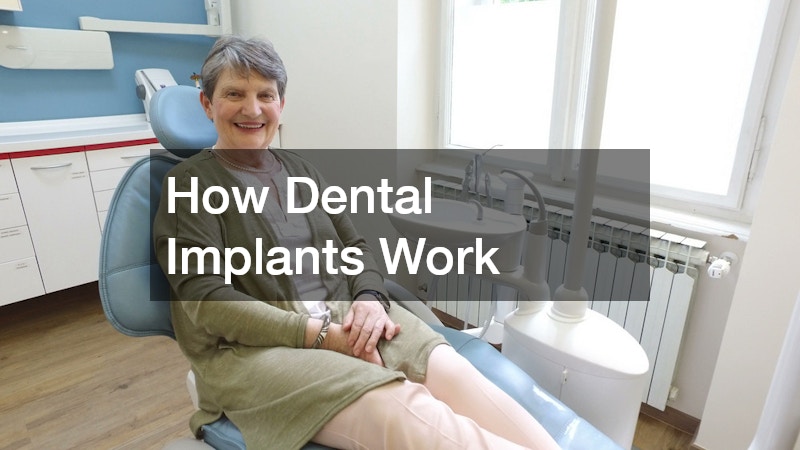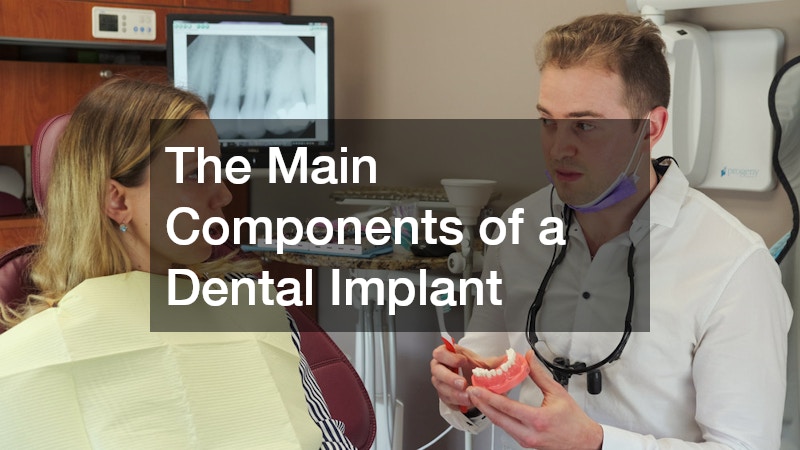

Dental implants are one of the most effective and long-lasting solutions for replacing missing teeth. Unlike dentures or bridges, implants restore both the appearance and function of natural teeth, helping you chew, speak, and smile with confidence. If you’re considering dental implants in Houston, TX, understanding how they work can help you make an informed decision about your treatment.
What Are Dental Implants?
A dental implant is an artificial tooth root made of titanium or zirconia that is surgically placed into your jawbone. It provides a stable foundation for a replacement tooth, bridge, or denture.
Over time, the implant fuses with your natural bone through a process called osseointegration, creating a secure, long-term anchor for the new tooth.
Dental implants are designed to look, feel, and function just like real teeth. They help maintain your facial structure, prevent bone loss, and eliminate the discomfort often associated with removable dentures.
The Main Components of a Dental Implant
A complete dental implant system typically consists of three parts:
-
Implant Post: The titanium or zirconia screw that serves as the artificial tooth root and integrates with your jawbone.
-
Abutment: A small connector piece that attaches to the implant and supports the crown or other restoration.
-
Crown or Prosthetic Tooth: The visible part of the implant, custom-made to match your surrounding teeth in shape and color.
When properly placed and maintained, implants can last decades—sometimes even a lifetime.
The Step-by-Step Process of Getting Dental Implants
Getting dental implants in Houston, TX typically involves several stages spread out over a few months to ensure strong, lasting results.
1. Initial Consultation and Evaluation
Your journey begins with a comprehensive dental exam. The dentist will take X-rays or 3D scans to assess your bone density and gum health. This step determines if your jawbone is strong enough to support implants or if you need additional procedures, such as bone grafting.
2. Treatment Planning
Once your dentist confirms that implants are suitable, they’ll create a personalized treatment plan. This plan outlines how many implants you need, where they’ll be placed, and whether any preparatory procedures are necessary.
3. Implant Placement Surgery
During this procedure, the dentist surgically inserts the implant post into your jawbone. The area is numbed for comfort, and most patients report minimal discomfort. After the implant is placed, your jawbone begins to heal and fuse with the implant—a process that usually takes three to six months.
4. Abutment Placement
Once osseointegration is complete, the dentist attaches an abutment to the implant. This small connector extends above the gum line and will hold the final crown in place. Sometimes, the abutment is placed during the same surgery as the implant, depending on the case.
5. Crown or Prosthetic Placement
The final step involves attaching the custom-made crown or prosthetic tooth to the abutment. The crown is designed to blend seamlessly with your natural teeth in both color and shape, restoring your smile and bite function.
Who Is a Good Candidate for Dental Implants?
Most adults with missing teeth are potential candidates for implants. Ideal candidates should have:
-
Healthy gums and adequate bone density
-
No active gum disease or infection
-
Good overall health and commitment to oral hygiene
Even if you’ve experienced bone loss, many dental implant specialists in Houston, TX can perform bone grafting or sinus lift procedures to prepare the jaw for successful implant placement.
Benefits of Dental Implants
Dental implants offer several advantages over other tooth replacement options:
-
Durability: With proper care, implants can last a lifetime.
-
Stability: They don’t slip or shift like dentures, making eating and speaking easier.
-
Bone Health: Implants stimulate the jawbone, preventing bone loss that occurs after tooth extraction.
-
Aesthetics: The crowns are custom-designed to match your natural teeth, creating a seamless look.
-
Confidence: They restore not only your smile but also your comfort and confidence in daily life.
Recovery and Aftercare
After your implant surgery, mild swelling or soreness is normal for a few days. Your dentist in Houston, TX will recommend soft foods and proper cleaning techniques during recovery. Maintaining great oral hygiene is key—brush twice daily, floss regularly, and visit your dentist for routine checkups.
Smoking or neglecting oral care can increase the risk of implant failure, so following your dentist’s aftercare instructions is essential. With good habits, your implants can last for decades without issues.
How Much Do Dental Implants Cost in Houston, TX?
The cost of dental implants in Houston, TX varies depending on the number of implants, the type of restoration, and any additional procedures needed (such as bone grafting). On average, a single implant can range from $3,000 to $5,000. Many dental offices offer financing plans or work with insurance providers to make treatment more affordable.
Conclusion
Dental implants are the gold standard for tooth replacement, providing strength, stability, and a natural look that can last a lifetime. Whether you’re missing one tooth or several, consulting a trusted dentist in Houston, TX can help determine if implants are right for you. With modern techniques and skilled professionals available locally, restoring your smile with dental implants has never been more reliable or rewarding.



